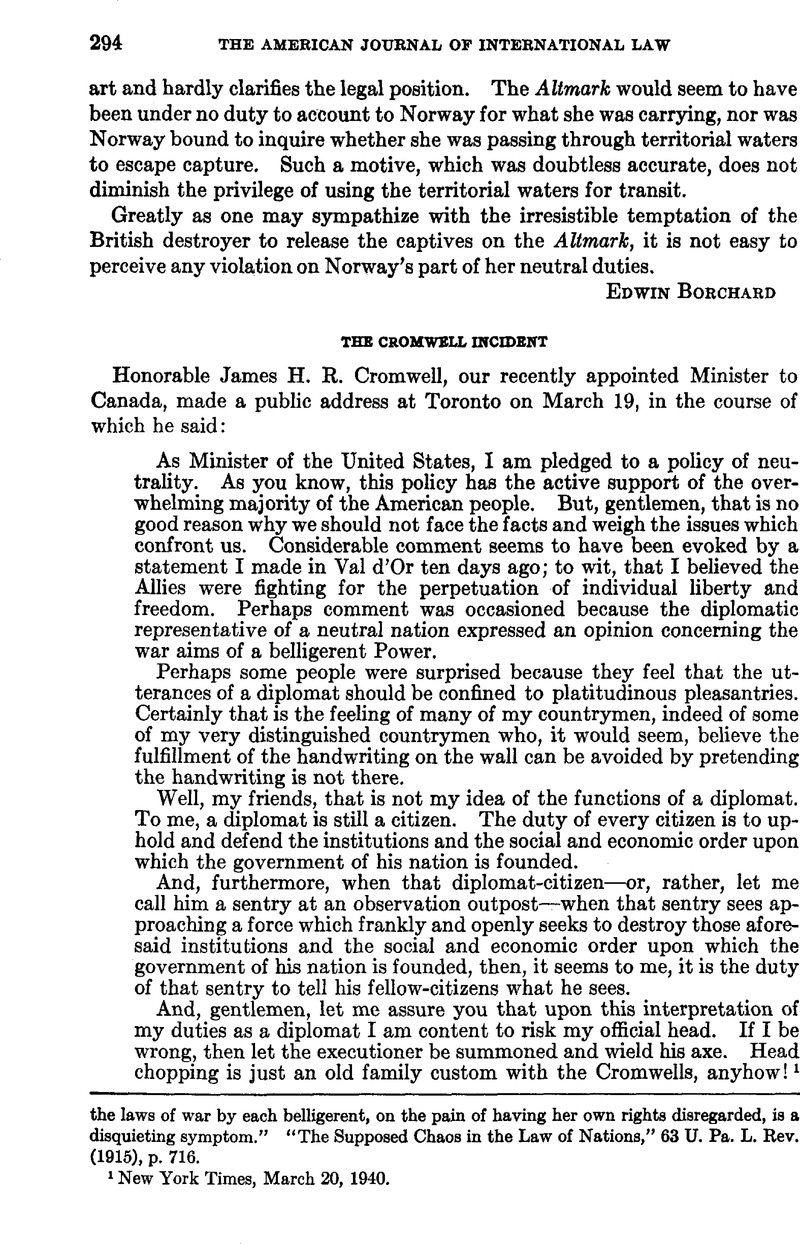Published online by Cambridge University Press: 12 April 2017

1 New York Times, March 20, 1940.
2 Representative Sweeney introduced a resolution directing the Foreign Affairs Committee of the House of Representatives to conduct an investigation as to the truth of the reported statements and, if they were found to be true, that it be recommended to the President that the Minister be recalled. Congressional Record, March 20, 1940, pp. 4848–4849. Congressman Tinkham of Massachusetts and Senator Clark of Missouri were also reported as demanding Mr. Cromwell’s recall. See Washington Post, March 24, 1940.
3 The attempt to show on the basis of an alleged “unimpeachable authority” that the President had received a copy of the speech prior to its delivery was met by a categorical statement from Presidential Secretary Early that the “unimpeachable authority” had been “deliberately invented.” (March 24,1940, cf. C.T.P.S. dispatch in the Washington Times-Herald of the same date.) Minister Cromwell issued a statement from his Fifth Avenue office in which he said:
“Published reports that President Roosevelt saw an advance copy of my Toronto speech or had any knowledge of its contents beforehand are made out of whole cloth. Such stories are absolutely untrue. The views which I expressed on the contrast between the principles of totalitarian and democratic forms of government and their results were made entirely on my own responsibility. Since that address, no one has at any time been given any reason or authority to express any views for me.” (New York Times, March 24, 1940.)
4 Washington Times-Herald, March 21, 1940; cf. Washington Post, March 23, 1940.
5 March 23, 1940.
6 The Instructions to Diplomatic Officers of the United States, prescribed by executive order of the President, March 8, 1927, contain the following paragraph:
“Diplomatic officers should be careful not to allude in any public address to political issues pending in the United States or elsewhere.” (Diplomatic and Consular Laws and Regulations of Various Countries, edited by Feller, A. H. and Hudson, Manley O. (Washington, 1933), Vol. II, p. 1276.)Google Scholar
7 Moore’s Digest of International Law, Vol. IV, p. 575.
8 Gentili, De legationibus, Book II, Ch. XVI, as quoted in Scott, James Brown, Law, The State, and the International Community (Columbia University Press, 1939), Vol. II, p. 270 Google Scholar.
9 Moore’s Digest of International Law, Vol. IV, p. 575.
10 Calliéres, The Practice of Diplomacy (English rendering, London, Constable & Co.. 1919), pp. 56–58.